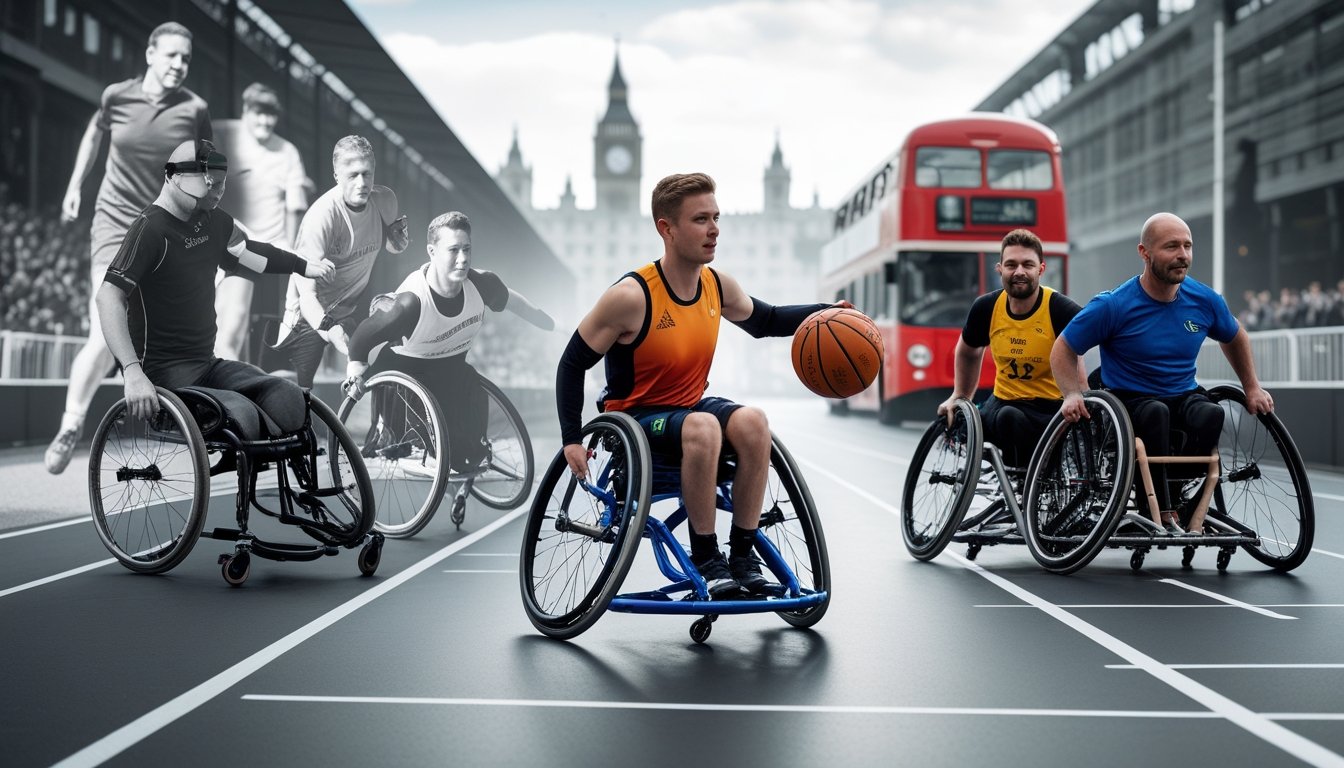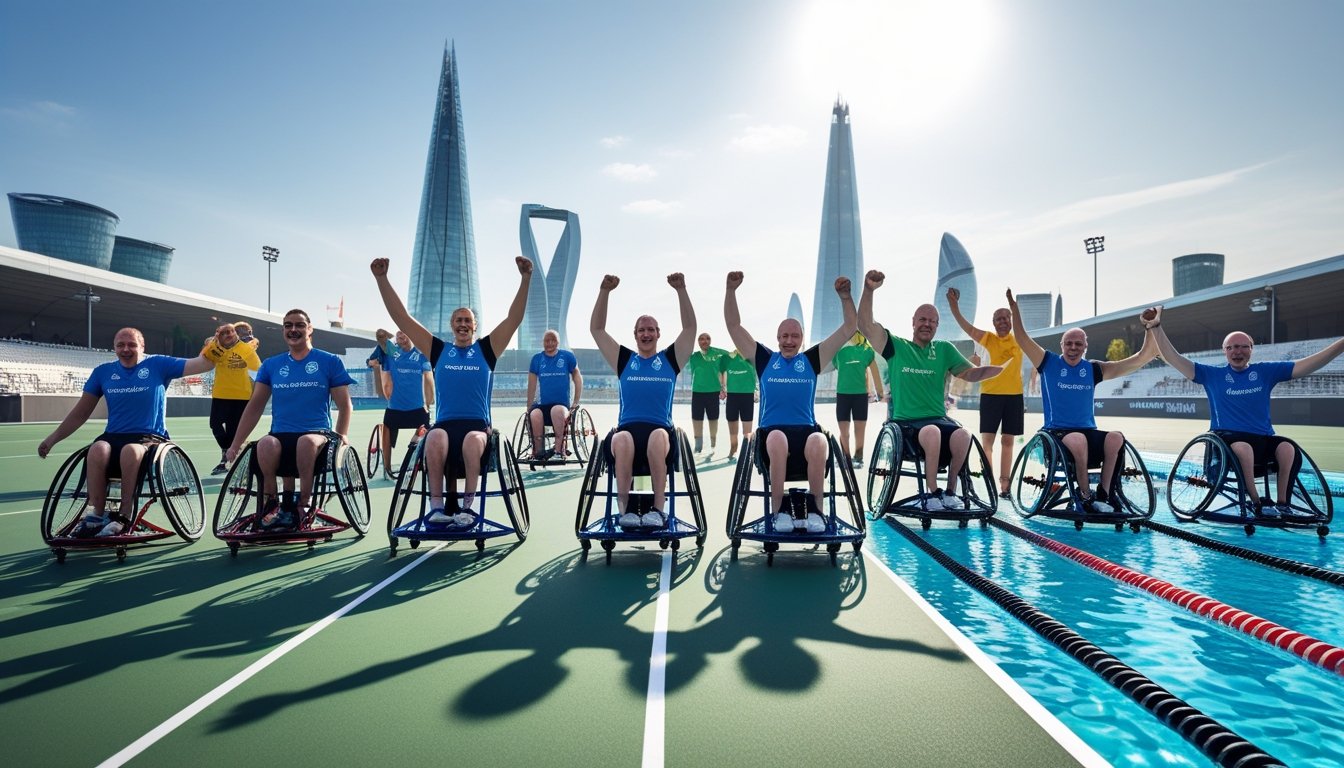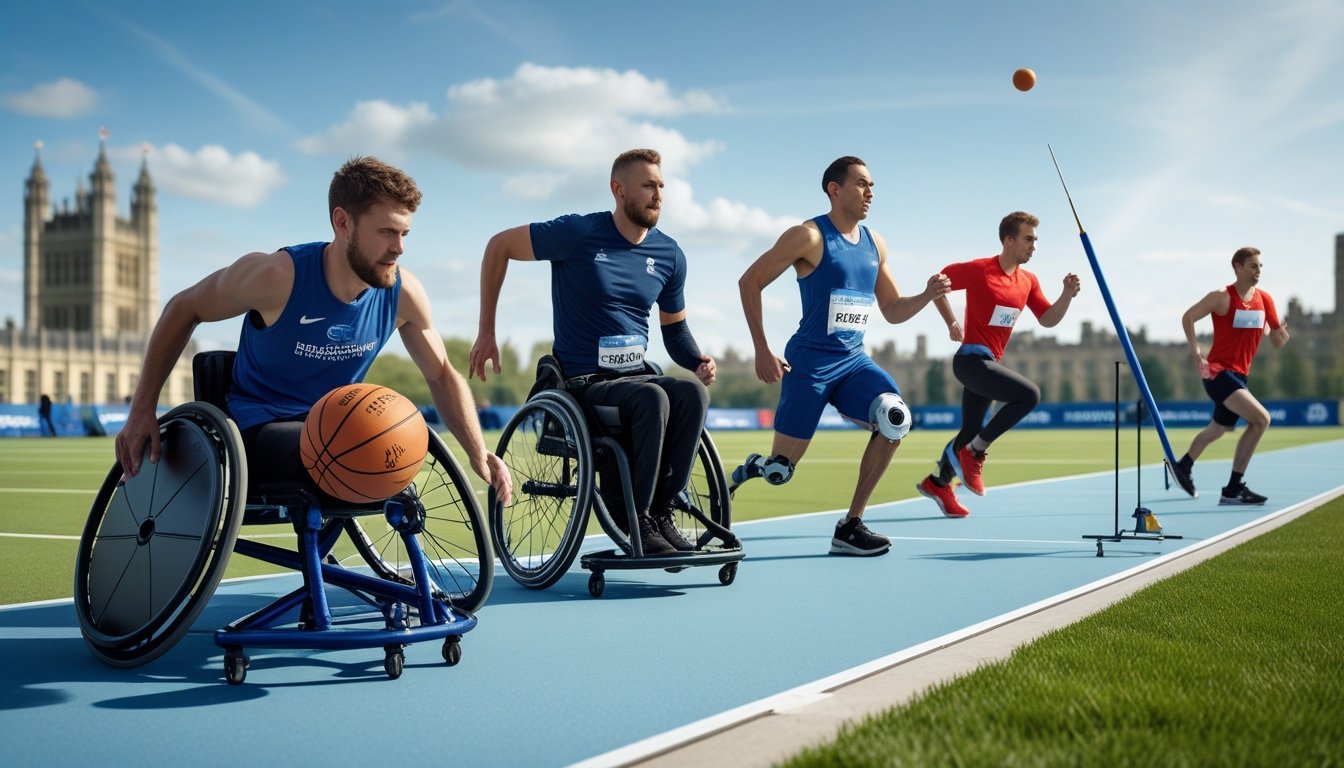Late updated: 05 Oct 2025 12:10
Written by: Emma Saunders
The Evolution Of Adaptive Sports In The UK: A Historical Overview
Adaptive sports in the UK have undergone a remarkable transformation, shaping not only the field of athletics but also societal attitudes towards disability. The roots of adaptive sports in the UK can be traced back to Stoke Mandeville, the birthplace of the Paralympic movement, which played a pioneering role in promoting sports for individuals with disabilities. From innovative equipment to expanded sporting opportunities, the evolution of adaptive sports has profoundly impacted both individuals and communities across the nation.

As we explore the journey of adaptive sports in the UK, it's essential to highlight the technological leaps and community initiatives that have propelled these sports into the mainstream. Advanced prosthetics and specialised wheelchairs have revolutionised training and competitions, making sports accessible to those once sidelined. This shift not only elevates the athletes but also fosters a culture that cherishes diversity and inclusion.
Our journey through the evolution of adaptive sports in the UK reveals inspiring stories of resilience and triumph. These narratives reflect not just the changes within the world of sports but also the overarching drive towards equality and empowerment. By understanding these developments, we gain valuable insights into how adaptive sports continue to inspire and lead a more inclusive sporting future.
Key Takeaways
- Adaptive sports in the UK began with the foundations at Stoke Mandeville.
- Technological advances revolutionise accessibility and athletic inclusivity.
- Community initiatives drive equality and empowerment within sports.
Key Milestones in the Evolution of Adaptive Sports in the UK

Adaptive sports in the UK have a dynamic history deeply rooted in resilience and innovation. From early grassroots initiatives to the formalisation of structured events, these milestones highlight important aspects that have shaped disability sports and the Paralympics, providing athletes with disabilities increasingly equal opportunities.
Origins and Early Development
The origins of adaptive sports in the UK trace back to post-World War II, when many soldiers returned with severe injuries and disabilities. Rehabilitation efforts spearheaded the introduction of recreational activities as a means of recovery and social integration. Hospitals and rehabilitation centres played pivotal roles in this development, evolving into spaces where individuals with disabilities could engage in sports such as archery and wheelchair basketball.
These early efforts were significant not just therapeutically but also socially, altering perceptions about disability and sport. Informal setups gradually transformed as community support and interest in disability sports grew. Initiatives by passionate individuals and charitable organisations helped lay the foundation for more structured and organised adaptive sports activities throughout the nation.
The Role of the Stoke Mandeville Games
The Stoke Mandeville Games, initiated by Dr. Ludwig Guttmann in 1948, marked a transformative stage in the adaptive sports landscape. Originally a small event for wheelchair athletes, it gained international recognition, laying the groundwork for what would eventually become the Paralympic Games. These games were revolutionary in showcasing the athletic potential of individuals with disabilities.
As the event grew, it attracted participants from various countries, fostering a spirit of competition and camaraderie. Held annually, the Stoke Mandeville Games provided a platform for athletes to compete and showcase their talent on a larger scale. The influence and success of these games cannot be overstated, as they provided a solid foundation for international disability sports competitions.
The Emergence of the Paralympic Games
Following the significant success of the Stoke Mandeville Games, the first official Paralympic Games took place in Rome in 1960. This milestone marked the formal establishment of the games as a major international sporting event. The growing popularity and attention highlighted the importance of integrating adaptive sports into global frameworks.
The UK has continued to be instrumental in the Paralympic movement, both as a host and a major contributor to its development. Emphasising inclusivity and competitive excellence, this evolution has shaped public attitudes toward disability sports and inspired countless athletes. The Paralympics has since become a prestigious event, drawing increased participation and recognition for athletes with disabilities on a global scale.
Major Innovations, Sports, and Community Impact
In the UK, adaptive sports have undergone tremendous advancements through technology, expanding sports programmes, and fostering community involvement. Key developments can be seen in wheelchair sports, adaptive programmes, and the enhancement of physical and mental well-being for athletes with disabilities.
Technological Advances and Specialised Equipment
Technological innovation has played a transformative role in adaptive sports. Racing wheelchairs, bespoke prosthetics, and advanced biofeedback systems have revolutionised the way athletes train and compete. For wheelchair sports, carbon fibre designs and aerodynamic frames allow for improved speed and agility. Smart devices track performance metrics, providing athletes with valuable data to enhance their techniques. Such advancements not only empower athletes but also promote inclusivity by enabling more participants to engage in sports previously inaccessible to them.
Growth of Wheelchair Sports
The growth of wheelchair sports in the UK, including wheelchair basketball, wheelchair tennis, and wheelchair rugby, has seen a significant uptick in participation and visibility. Local clubs and national leagues have been established, providing platforms for athletes to showcase their skills. The popularity of these sports has encouraged increased investment in training facilities and coaching. By featuring in events such as the Paralympics, wheelchair sports have also gained a broader audience, promoting a more diverse sporting culture.
Establishment of Core Adaptive Sports Programmes
The UK has seen a robust establishment of adaptive sports programmes that focus on increasing access and participation for individuals with disabilities. These programmes often incorporate a range of activities like sitting volleyball and adaptive surfing, designed to suit different abilities and interests. Key organisations, along with governmental support, have ensured these programmes are available at both the grassroots and elite levels. By prioritising inclusivity, these initiatives contribute not just to athletic excellence but also to societal cohesion.
Physical and Mental Well-Being Benefits
The benefits of participating in adaptive sports extend beyond physical health. Engaging in sports activities boosts self-esteem and provides participants with a sense of community and purpose. Disability sports help in breaking down societal stereotypes, fostering acceptance, and understanding. Athletes often experience improved mental well-being, owing to the sense of achievement and camaraderie found in these environments. By promoting both physical and mental health, adaptive sports offer a holistic approach to well-being for individuals with disabilities.
Frequently Asked Questions

Adaptive sports in the UK have seen significant growth and transformation over the years. From technological advancements enhancing participation to the influential roles of government policy and non-profit organisations, various factors have shaped this evolution.
How have adaptive sports in the UK evolved since the Paralympic Games inception?
The inception of the Paralympic Games has been pivotal in raising awareness and increasing participation in adaptive sports. Since its inception, we have witnessed a dramatic shift in public perception and infrastructure support, paving the way for wider acceptance and inclusivity in these sports.
What impact has government policy had on the development of adaptive sports in the UK?
Government policies have been instrumental, with initiatives aimed at improving accessibility and funding for adaptive sports programmes. Policies promoting inclusivity ensure that individuals with disabilities have greater opportunities to participate, leading to improved facilities and increased investment in sports development.
In what ways have advancements in technology influenced adaptive sports in the UK?
Technological advancements have revolutionised adaptive sports, offering new and enhanced sporting experiences. Innovations in equipment design, such as lightweight wheelchairs and adaptive bicycles, have enabled athletes to perform at higher levels and broadened the scope of sports they can compete in.
What role have charities and non-profit organisations played in the proliferation of adaptive sports across the UK?
Charities and non-profit organisations have been crucial in championing the cause of adaptive sports. They provide essential funding, resources, and advocacy that help maintain current programmes and develop new opportunities. Their efforts have raised public awareness and encouraged broader participation across different age groups and abilities.
How has media representation of athletes in adaptive sports changed in the UK over the years?
Media representation has evolved significantly, with more positive coverage and visibility for adaptive sports and athletes. Increased media exposure during major events like the Paralympic Games has contributed to changing societal attitudes, recognising the achievements of athletes with disabilities and promoting a culture of respect and acceptance.
What are the key challenges facing the future growth of adaptive sports in the UK?
Despite progress, challenges remain, such as securing consistent funding and resources, improving accessibility in rural areas, and further changing public perceptions. Ensuring equal opportunities for all individuals with disabilities requires ongoing collaboration between government, non-profits, and communities to address these pressing issues effectively.
